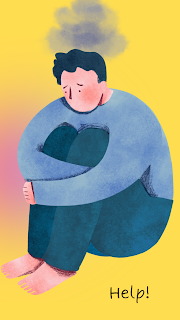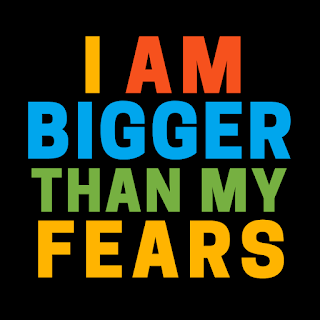How to Heal Emotional Trauma
Trauma is the emotional, psychological and physiological residue that results from heightened stress that accompanies experiences of threat, violence and life-challenging events.(https://professionals.childhood.org.au/prosody/2019/03/what-is-trauma/)
Types of Trauma
Trauma can either be physical or emotional trauma. In the case of physical trauma, it's the result of a serious injury. There are two types of physical trauma: blunt-force trauma and penetrating trauma. In the case of emotional trauma, it can either be acute or chronic.
Acute trauma is defined as "the emotional response that happens during and shortly after a single distressing event." And chronic trauma is defined as "a long-term emotional response to prolonged or repeated distressing events that span over months or years." (https://www.verywellhealth.com/what-is-trauma-5212104)
Sometimes we may not even be aware that we're suffering from trauma. And sometimes we may think that we're healed when we're not. It could be because we've consciously or subconsciously buried it. So what are some of the signs of trauma?
The following are some of the signs of unresolved trauma:
1. Anxiety
2. Panic attacks
3. Intrusive thoughts and memories about the traumatic event
4. Sleep disturbance and/or nightmares
5. Avoidance of people, places and things that you didn't avoid before
6. Physical symptoms such as stomach upset
According to Live Free Counseling, the effects of trauma can literally change the brain and prevent you from truly experiencing a life of joy, freedom and peace. So if you've ever experienced trauma, it'll do you much good to work on healing your trauma as soon as possible.
1.Trauma Can Affect Our Mental Health
Traumatic experiences can lead to the following mental health issues: post-traumatic stress disorder (PTSD), acute stress disorder (ASD), reactive attachment disorder (RAD), disinhibited social engagement disorder (DSED) and adjustment disorder (AD).
PTSD
PTSD is a mental health condition that's triggered by a terrifying event. Symptoms of PTSD include flashbacks, severe anxiety, nightmares, intrusive thoughts, self-isolation, irritability, hyper vigilance, difficulty concentrating, insomnia, etc.
ASD
ASD and PTSD have similar symptoms. The key differences are as follows:
1. Onset and duration: ASD symptoms are immediate and their duration is between 48 hours and 30 days.
2. Dissociation: It occurs when you feel disconnected from your thoughts, body or the environment around you. And if you've trouble remembering a certain period in your life, you may be experiencing what is known as dissociative amnesia.
RAD
RAD is a condition that occurs when a child doesn't form healthy emotional bonds with their caregivers, often as a result of emotional neglect or abuse at an early age.
The effects of RAD in adults can be significant, and they could interfere with their ability to fully experience relationships, a positive sense of self and mental wellness. (https://www.healthyplace.com/ptsd-and-stress-disorders/reactive-attachment-disorder/reactive-attachment-disorder-in-adults)
DSED is an attachment condition characterised by difficulty in forming emotional bonds with others and a lack of inhibition around strangers. It tends to occur in young children who have experienced neglect, trauma, abandonment or abuse. (https://www.verywellmind.com/what-is-disinhibited-social-engagement-disorder-4138254)
AD is an excessive reaction to a stressful or traumatic event. In other words, the reaction is more severe than what would normally be expected. And it can affect one's social, occupational and academic functioning. Symptoms include depression and anxiety.
Trauma can get trapped in our cells. At the cellular level, our bodies remember everything that we feel and experience. And each cell stores memories about our experiences, habits, sensations and emotions. As a result, painful disturbing memories can stay trapped in our bodies long after a traumatic event has passed. (https://www.the-alchemy-project.com/post/tissue-memory-how-emotional-trauma-gets-trapped-in-the-body)
We might forget the events that have caused our traumas but our bodies never forget. And as a result, we may suffer from certain chronic illnesses, such as heart disease, respiratory illness, diabetes. cancer, stroke and kidney disease.
As mentioned earlier, trauma can cause severe anxiety. And high levels of anxiety can cause widespread inflammation in your body, which can lead to serious health issues such as cardiovascular and autoimmune diseases.(https://www.psychiatryfortworth.com/blog/5-long-term-effects-of-emotional-trauma)
According to Psychiatry Fortworth, many patients at the Institute for Advanced Psychiatry experience high levels of anxiety after a traumatic event. So here you can clearly see the connection between trauma and inflammation.
3.Trauma Can Affect Our Energy
According to Nirvana San Jose, trauma can cause energy drain. A lot of energy is invested in keeping a traumatic state steadily static, leading to a perpetual state of exhaustion.
I used to get fatigued very easily, possibly due to PTSD. But I'm slowly getting healed from the effects of trauma and gaining back my energy. In fact, I'm now more energetic than before although I've been expending my energy more in recent months. And so I definitely agree that trauma can cause energy drain.
Another manifestation of trauma is in the form of OCD. OCD is defined as an anxiety disorder, characterised by recurrent unwanted thoughts and/or repetitive behaviours.
According to Scientific American, some cases of OCD may have been a result of trauma. There's especially a link between OCD and childhood trauma. Based on my personal experiences with OCD in the past, I must say that trauma can indeed lead to OCD.
5.Trauma Can Lead to Addictions
Every addiction has a trauma underneath it. People who suffer from trauma may be more vulnerable to addiction as a means to quiet intrusive thoughts and suppress arousal caused by elevated stress hormones.
Trauma causes feelings of helplessness and a sense of insecurity. It could be due to an ongoing experience with bullying, chronic abuse, discrimination or humiliation. And because of such events, many may use drugs to cope which leads to drug addiction. (https://stagesrecoverycenters.com/trauma-and-addiction/)
Besides drug addiction, trauma can also lead to food addiction. Like drug addiction, food addiction is a maladaptive coping mechanism that distracts people from complex emotional pain. And it allows them to feel detached from their traumas temporarily. (https://www.thefoodaddictioncoach.co.uk/2021/11/the-correlation-between-trauma-food-addiction/)
According to Choosing Therapy, a person's brain can be negatively impacted by trauma, often resulting in impaired memory.
Research has shown that there's a definite relationship between emotional trauma and memory loss. Sometimes the memory loss is a temporary way to cope with trauma, but it can become permanent too. (https://casapalmera.com/blog/how-trauma-affects-your-memory/)
7.Trauma Can Be Passed to Future Generations
According to The Best Brain Possible, trauma can be inherited through epigenetics. Trauma causes epigenetic changes in the DNA, which the next generation inherits. In other words, it can be inherited via "molecular memory". As mentioned earlier, our bodies remember what we've experienced, etc because they're stored up in our cells.
What Can We Do If We're Suffering From the Effects of Trauma?
There are ways we can heal from the effects of trauma. For instance, we can go for therapy.
1. Trauma Therapy
Trauma therapy, also known as trauma-informed mental healthcare, is a form of therapy that's designed to treat the emotional and psychological consequences of trauma. (https://withtherapy.com/therapist-insights/trauma-therapy-what-is-it-and-how-can-it-help/)
There are different types of trauma therapy: prolonged exposure, cognitive processing therapy, cognitive behavioural therapy, eye movement desensitisation and reprocessing, narrative exposure therapy, as well as equine therapy.
1) successfully handle the reality of the traumatic events that occurred in the past (so that they don't get a hold on us);
2) eliminate or reduce the symptoms of trauma;
3) regain our personal power; and
4) get over addictions caused by traumatic stress.
2. Sound Healing
Sound healing is the use of sacred instruments or voice to release energetic blockages. According to The Sound Healer, when we hold on to the strong emotions that a traumatic response elicits, they actually get stored in our bodies.
But we can use sound healing to bring movement to the stuck energy, thereby helping it to circulate again. So sound healing basically helps to remove blockages in our chakras that stop the flow of energy in our bodies.
Personally, I've been using another form of sound healing (sound frequencies) daily for several months now and I've noticed that I'm now better able to handle trauma triggers.
There are several sound frequencies that I listen to daily. Out of these different sound frequencies, I like 963Hz the most because I feel that it helps to heal my mind and release emotional blockages too.
Incidentally, according to FreqE1, 963Hz has long been recognised as one of the ancient healing frequencies that helps to heal the body, mind and soul.
Music therapy is defined as the use of music to address the physical, emotional, cognitive and social needs of a group or an individual. And it employs a variety of activities, such as listening to melodies, playing an instrument, drumming, writing songs and guided imagery to achieve its goals. (https://www.takingcharge.csh.umn.edu/common-questions/what-music-therapy)
When music is played by a professional music therapist, patients have reported a decrease in anger, anxiety, stress and even depression. (https://www.thewoodsatparkside.com/music-therapy-and-mental-health-can-music-help-us-heal/)
Music therapy helps to heal trauma by:
• providing an outlet for emotions associated with traumatic experiences;
• helping to reduce anxiety and stress;
• providing positive changes in mood and emotional states;
• helping to enhance positive physiological changes, such as lower blood pressure, reduced heart rate and relaxed muscles.
Breathwork is a technique used to help process trauma by bringing awareness to sensations and non-verbal memories stored in the body. It allows people to purge and let go of the feelings, thoughts, sensations and memories that no longer serve them.
According to the author of Breathwork: How to Use Your Breath to Change Your Life, the ego builds fortresses of energetic scar tissue around old wounds in its unrelenting pursuit of self-preservation. In order to heal from trauma, we need to expose those wounds and it can be done via breathwork (pg 79).
Breathwork can be used to identify where trauma is stored in the body, and the events that have caused the trauma. Through breathwork, trauma can be expelled by releasing the pent-up energy that's deeply imprinted within the subconsciousness of the person experiencing the trauma. (https://transformingtrauma.net/how-breathwork-can-help-with-trauma-and-addiction/)
The aim of crystal healing is to help restore a sense of wellness, wholeness and balance.
Each crystal vibrates at a certain frequency. And according to an article on Therapy Directory, when we introduce this frequency into our energy fields, it allows our bodies to remember a healthier emotional or mental state than what we've experienced during a traumatic event.
Crystal healing is energy-focused. It's based on the belief that we're all made up of energy and that when it becomes stagnant, unbalanced or blocked, it can cause illness. And the purpose of crystal healing is to help unblock, balance and direct energy where it's most needed, gently supporting the body to heal in a therapeutic way. (https://www.therapy-directory.org.uk/articles/crystal-therapy.html)
Personally, I prefer to hold healing crystals in my hands. Based on my personal experiences with crystals, holding the crystals in my hands somehow feels therapeutic for me. And I find that it's especially so when I work with amethyst crystals.
According to Dr Jen Bessire, moving our bodies is a perfect way to release trapped emotions that are a result of trauma.
There are well-documented emotional benefits of movement. Take strength training as an example. It can boost our self-esteem, reduce depression and anxiety, as well as make us feel more capable of meeting emotional challenges. And movement in the form of walking can help us feel more distant from our past, which includes our past traumas. (https://greatergood.berkeley.edu/article/item/moving_your_body_is_like_a_tuneup_for_your_mind)
Moving one's body includes shaking. Animals shake their bodies after they're attacked. Why? It's because shaking their bodies helps them to release stress and adrenaline so that their bodies don't store the traumas. (https://www.robyngraycounseling.com/blog/what-is-trauma-therapy-and-how-does-it-work)
Since animals are intelligent enough to do that after a traumatic event, shouldn't we humans - who're of higher intelligence - do the same? Or do we rather allow our egos or anything else to stand in the way of our release from traumas?
Towards the end of last week, I suddenly thought of using rhythmic sounds to heal myself of past traumas. And I must say that it does help to some extent.
According to Trauma Research Foundation, repetitive rhythmic processes can be profoundly effective in regulating the brain and nervous system, especially with regard to trauma symptoms and stress response activation.
And according to Chester Street Foundation, rhythm has a calming effect on the human nervous system, and a regulating effect on the human brain when it's steady and comfortably paced.
All of us are unique and therefore what works for me may not work for you and vice versa. So if you're serious about healing your emotional trauma, you may want to explore the different methods mentioned above or any other methods that you might have heard of.
I'm now on the road to full recovery from the effects of past traumas. And I know that you can be fully healed as well. So let's work on our full recovery, shall we?
Cheers,
Annie Chan
(P/s: My next blog post will be published on 30 Oct 2022.)
NOTES
1. Check out my website:
https://www.elevatewellnesscircle.com/
2. Check out my affiliate programme:
https://www.elevatewellnesscircle.com/affiliate
3. Try for FREE: power recharge therapy, power foot detox therapy & acugraph energy analysis! (https://energia.sg/free?ref=anniechan)


















